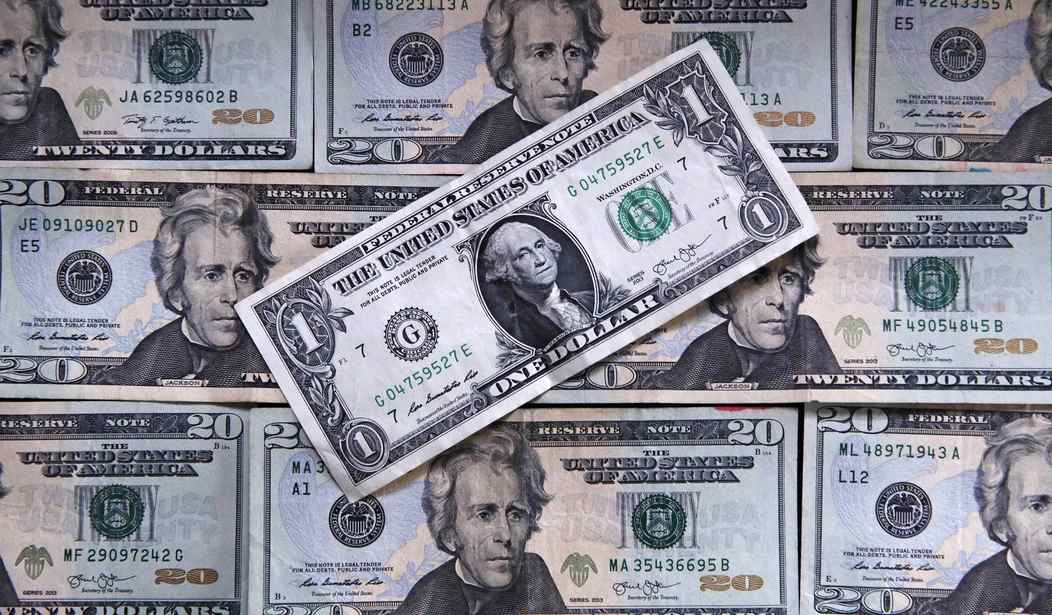It’s back, it’s forth, debt ceilings negotiations are on, they’re off—the discussions between House Speaker Kevin McCarthy and President Joe Biden are a constantly changing drama. After they both issued contentious statements Saturday, McCarthy on Sunday said he had spoken to the president by phone as Biden returned from the G7 summit on Air Force One.
Both sides have been accusing the other of being intractable in negotiations over raising the debt ceiling, which Treasury Secretary Janet Yellen says we could hit as soon as June 1, causing “economic chaos.”
Evidently, they’re on slightly friendlier terms after the phone call, and they’ve agreed to meet at the White House Monday.
“My discussion with the President I think was productive,” McCarthy told NBC News after their call, adding that the president had requested to meet in person Monday and he accepted the offer.
“I think we can solve some of these problems. But I’ve been very clear to him from the very beginning, we have to spend less money than we spent last year.”
Just got off the phone with the president while he’s out of the country.
My position has not changed. Washington cannot continue to spend money we do not have at the expense of children and grandchildren.
Tomorrow, he and I will meet in person to continue negotiations.
— Kevin McCarthy (@SpeakerMcCarthy) May 21, 2023
Their respective staffs met Sunday night in advance of the talks:
A White House official confirmed the upcoming Monday meeting at the White House between Biden and McCarthy and said that their staffs will also reconvene at 6 p.m. Sunday evening to discuss remaining issues.
Yellen appeared on “This Week” with George Stephanopolous on May 7 to warn that the country could literally run out of money by early June if a deal was not struck. On Sunday, she went on on “Meet the Press” to reiterate her concerns:
“I indicated in my last letter to Congress that we expect to be unable to pay all of our bills in early June and possibly as soon as June 1. And I will continue to update Congress, but I certainly haven’t changed my assessment,” Yellen said. “So I think that that’s a hard deadline.”
Earlier Sunday, before the phone call, the two sides sounded as if they were far apart:
Republicans have been seeking spending cuts in the federal budget in exchange for their support to raise the nation’s borrowing limit. On Sunday, Biden acknowledged “significant” disagreement with Republicans in some areas, insisting that while he’s willing to cut spending, tax “revenue is not off the table” as part of the deal.
McCarthy, in an interview Sunday with Fox News, disagreed with that characterization, saying Biden previously told him that tax increases were “off the table” and that he wouldn’t agree to them.
“He’s now bringing something to the table that everyone said was off the table,” the California Republican said. “It seems as though he wants to fault more than he wants a deal.”
Expect this thing to go down to the wire, as neither side looks like they’re close to giving the other what they want. In some ways, it can be pretty easily summarized: Biden and the Democrats want to continue spending like drunken sailors, McCarthy and the Republicans argue that they will only agree to a debt ceiling increase in exchange for spending cuts. Obviously, there are other disagreements, but that’s the crux of the matter.
The nation has never defaulted on its debt before, so economists can’t tell us precisely what would unfold. That being said, it certainly wouldn’t be a good thing for America:
The far-reaching effects are hard to fully predict: from shock waves in financial markets to bankruptcies, recession and potentially irreversible damage to the nation’s long-held role at the center of the global economy…
But as the day approaches when the United States begins to run out of cash to pay its bills — which could be as soon as June 1 — investors, executives and economists around the world are gaming out what might happen immediately before, during and after, hatching contingency plans and puzzling over largely untested rules and procedures.
“We are sailing into uncharted waters,” said Andy Sparks, head of portfolio management research at MSCI, which creates indexes that track a wide range of financial assets, including in the Treasury market.
It’s getting close to nail-biting time.
See also:
Brutal New AP-NORC Polling Destroys Democrat Narrative on the Debt Ceiling Fight
House Speaker Kevin McCarthy’s Popularity Has Surged Since January














Join the conversation as a VIP Member